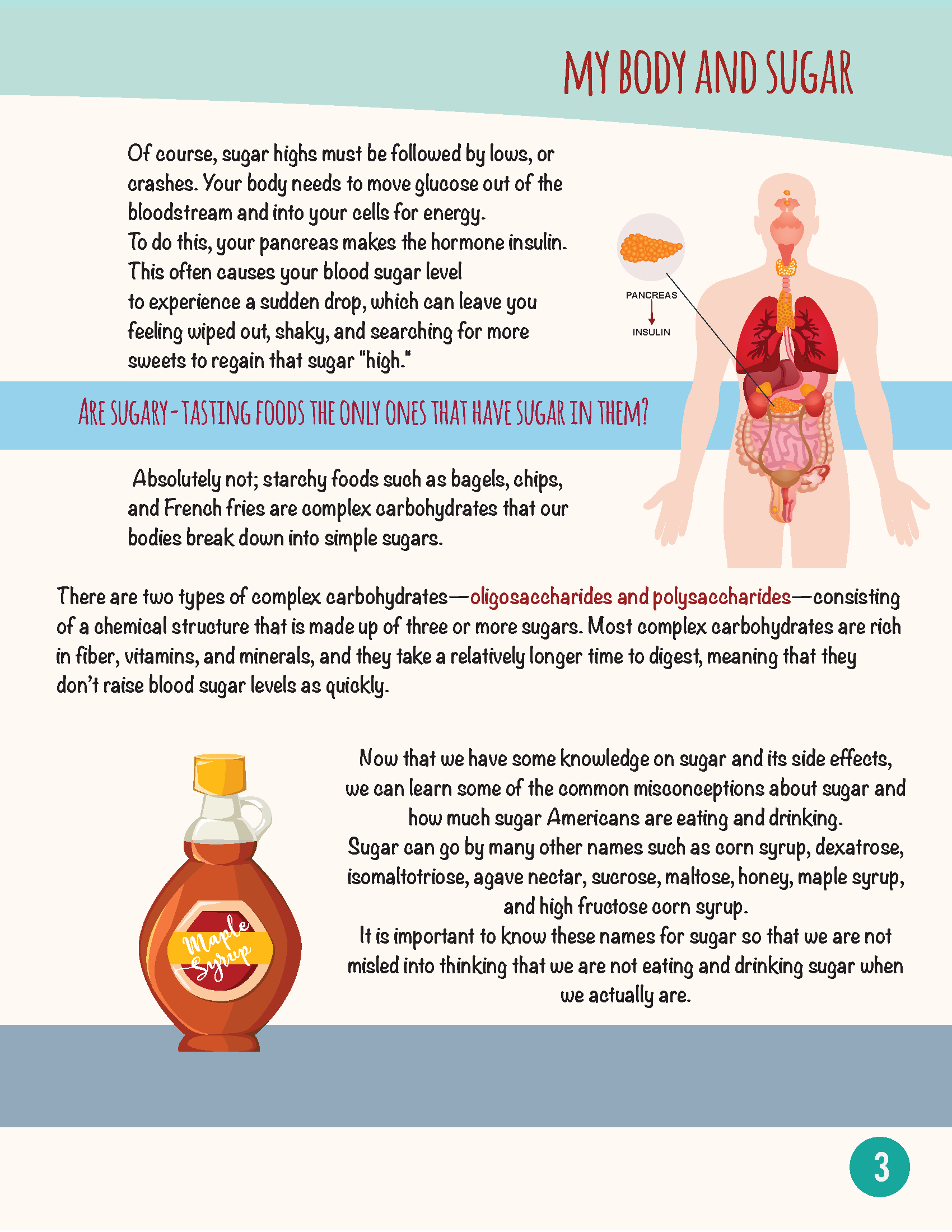
My Body and Sugar
Of course, sugar highs must be followed by lows, or crashes. Your body needs to move glucose out of the bloodstream and into your cells for energy. To do this, your pancreas makes the hormone insulin. This often causes your blood sugar level to experience a sudden drop, which can leave you feeling wiped out, shaky, and searching for more sweets to regain that sugar "high."
Are Sugary-Tasting Foods The Only Ones That Have Sugar In Them?
Absolutely not; starchy foods such as bagels, chips, and french fries are complex carbohydrates that our bodies break down into simple sugars.
There are two types of complex carbohydrates- oligosaccharides and polysaccharides- consisting of a chemical structure that is made up of three or more sugars. Most complex carbohydrates are rich in fiber, vitamins, and minerals, and they take a relatively longer time to digest, meaning that they don't raise blood sugar levels are quickly.
Now that we have some knowledge on sugar and its side effects, we can learn some of the common misconceptions about sugar and how much sugar Americans are eating and drinking. Sugar can go by many other names such as corn syrup, dextrose, isomaltotriose, agave nectar, sucrose, maltose, honey, maple syrup, and high fructose corn syrup. It is important to know these names for sugar so that we are not misled into thinking that we are not eating and drinking sugar when we actually are.